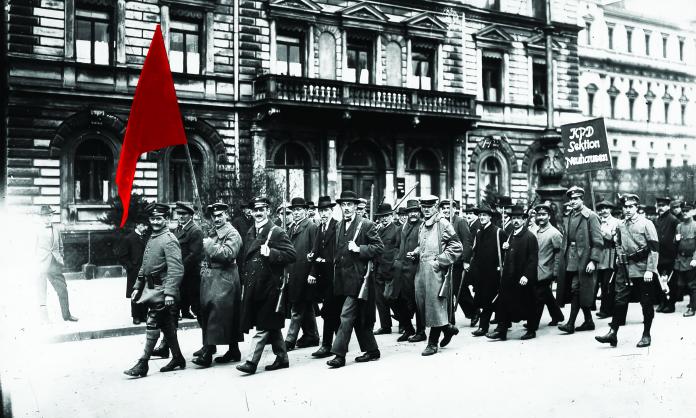Figures released in the ACTU October 2013 Economic Bulletin show that Australian workers produce, on average, $US53 per hour they work.
I don’t know about you, but I don’t get paid $53 per hour. So where does that money go?
The difference between the amount you produce and the amount you get paid goes straight into the boss’s pocket.
Employers call it a reward for their investments. Marx called it something else: exploitation.
Exploitation conjures up images of sweatshop factories in the developing world or dodgy contractors paying migrants cash-in-hand. But for Marxists, exploitation is not simply a disparaging term for a few amoral bosses. Nor is it the result of the system being abused. It is the typical, everyday functioning of capitalist production.
Whether you’re a textile worker in Bangladesh being paid $US38 a month or the average worker in Australia being paid far less than the wealth you create, the process is technically the same.
“The worker, free or unfree,” wrote Marx, “must add to the labour time necessary for his own maintenance an extra quantity of labour time in order to produce the means of subsistence for the owner of the means of production, whether this proprietor be an Athenian aristocrat..., an American slave owner... or a capitalist.”
Under capitalism, that extra quantity of unpaid labour takes the form of profit.
But how did this situation arise? No one starts a new job by calculating how many working hours they need to cover their own expenses and then, out of the goodness of their heart, donates the extra hours to their boss.
The separation of the producers of wealth – workers – from the machines and tools required to produce that wealth allows bosses to dictate the terms of employment. Workers, owning nothing but our capacity to labour, can usually choose which boss we are willing to be exploited by. But we have no choice but to be exploited by someone.
There are various ruling class myths excusing this state of affairs – such as, “innovation drives wealth” or “wealth is a reward for hard work”. But the existence of a class of parasites (the likes of Gina Rinehart, Rupert Murdoch and co.) indicates that all you need to make it to the top is to be born rich. It doesn’t take hard work to become rich from inheriting a fortune or exploiting the labour of others.
In fact it is pretty obvious that those at the top contribute very little. If Gina went on strike, the only noticeable effect would be a shortage of bad poetry.
But if workers at Coles and Woolworths strike, rotting food piles up in the warehouses; if dock workers refuse to load ships, it shuts down foreign trade; if power workers strike, there is no electricity. And the bosses don’t make any profits.
The capitalists grow rich not because they contribute to wealth creation or the day to day running of society, but because of a process of legalised theft.










